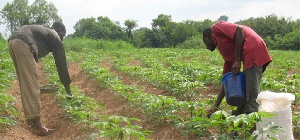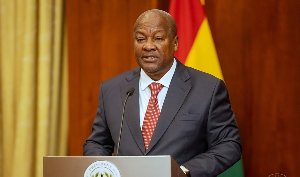Mr Peter Ayamga Ayinbisa, the District Chief Executive (DCE) for Bongo, has called on the media to intensify public education on the coronavirus disease, to make people adopt best practices to minimize its spread.
He urged the media to be circumspect in their reportage and report facts in order to avoid panic and public unrest.
The DCE made the appeal at a Public Health Emergency Management Meeting in Bongo in the Upper East Region, organized to discuss the District’s emergency preparedness with regards to the outbreak of the coronavirus.
The meeting was to educate key stakeholders on their roles in contributing to the prevention of the spread of the virus in the District.
The DCE said misinformation and reports about the number of infected cases recorded, created panic among the citizenry and urged journalists to be fair, accurate and report on authentic issues, to better inform the public.
Mr Ayinbisa further called on the media to use their wider platforms to educate the masses on the proper measures to adopt to prevent the spread of the virus and avoid spreading wrong information.
Dr William Gudu, the Medical Superintendent, Bongo District Hospital, said the management of the Hospital had put up intensive measures to combat the COVID-19 pandemic should it occur in the District.
He said the management of the Hospital had prepared the public health emergency response teams and established district and sub-district frontline screening teams and centres to ensure that staff, patients and visitors entering the health facilities were screened before being allowed into the OPD.
A two-bed room bungalow with toilet and bath, had been converted into a holding centre and many other measures were being taken to contain the disease should an outbreak occur, he said.
Dr Gudu added that the Hospital and its frontline teams needed materials such as personal protective equipment, non-contact thermometers, gloves and face masks to enable staff work effectively.
“We all need to be very cautious of the COVID-19 and observe all basic personal hygiene including regular handwashing under running water, avoid contact with persons and objects and regularly use hand sanitizers to prevent its spread,” he stressed.
Mr Stephen Bordotsiah, the Bongo District Director of Health Service, noted that there was a port health station at the Namoo Border, linking Ghana and Burkina Faso, and they were collaborating effectively with immigration services to ensure that all persons entering the country were thoroughly screened.
He said the Immigration Service had identified five Major unapproved routes and assigned personnel to patrol those areas to ensure that people did not escape into Ghana.
The Director indicated that education would be intensified to ensure that all persons who were sick passed through the approved routes, so as to enable the health professionals assess them before being allowed into Ghana.
He called on all stakeholders to intensify public education about the COVID-19 to enable the public appreciate the relevance of adhering to personal hygiene protocols to avoid its spread.
General News of Tuesday, 24 March 2020
Source: GNA













